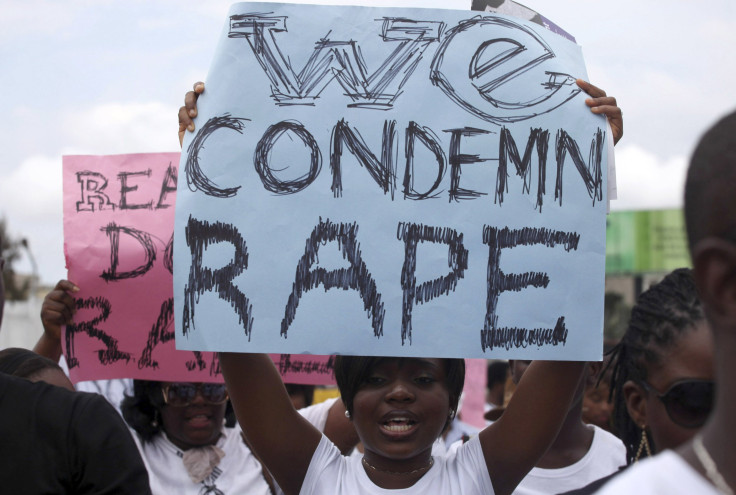Nigerian Minister Suggests Death Penalty For Convicted Rapists

A female Nigerian government minister has proposed imposing the death penalty on defendants convicted of rape.
Hajiya Zainab Maina, the Minister of Women Affairs and Social Development, expressed her concern about sexual violence against women rising in the country and said drastic steps must be taken to combat it.
Maina said up to 10 cases of rape are reported in the country each week.
"This has reached an alarming rate," she said, according to Nigerian newspaper This Day.
"The ministry is working closely with the police and other security agencies. It is also trying to make the police set up a gender desk in every police station to handle such cases so that serious punishment, perhaps a death sentence, would be handed to culprits.”
Nigerian laws call for the death penalty in cases of murder, although it is rarely applied.
BBC reported that in Nigeria, as in many emerging nations, rape disproportionately victimizes the poor and prosecution is weak. In addition, in a conservative, feudal society, many victims are reluctant to report sexual assault because there is an associated stigma.
Amaka Okafor-Vanni, a columnist for the Guardian of Britain, wrote a few months ago that a “rape culture” exists in Nigeria. “There are numerous cases of rape and gang rape in Nigeria … yet many go unreported,” she declared.
“The few that get reported to the authorities are either not pursued by the police or the victim is advised to keep silent lest she disgraces her family. Nigeria is still very much a patriarchal society, a society where rules and norms are dictated and governed by men. Women are assigned roles, spaces and our bodies [sic] determined by men.”
Indeed, according to Nigerian Police Watch, only about 1,950 cases were reported in 2009 in the country of more than 150 million people.
In a report called "Rape The Silent Weapon," filed by Amnesty International a few years ago, the campaigners accused Nigerian police and security forces of either covering up rapes committed by others or committing such crimes themselves.
About a year and half ago, the issue came to the fore after the gang rape of a female student at Abia State University outraged the country – principally because the five culprits filmed it on their cell phones and shared the gruesome images with their friends. In March 2013, Nigerian police reportedly ascertained that the rape did not occur on campus but in a nearby village. They have apparently arrested the men involved.
But such arrests are rare.
Police spokesman Frank Mba told Nigeria’s Leadership newspaper that rapes are grossly underreported.
“Most rape cases are compounded by family members, and the reasons are obvious,” he said. “The first one is the fear of stigmatization. Most rape victims and their relatives, particularly, if the person raped is a young woman, unmarried, they probably fear that when the case is made public it may impact negatively on her chances of getting married.”
Mba added: “The second is the very nature of our culture. Everything that has to do with sex is painted with some form of taboo. We grew up to see sex as something that must not be talked about. There is so much secrecy about sex in Africa, and that is why even sex education is hardly thought in schools.”
© Copyright IBTimes 2024. All rights reserved.





















